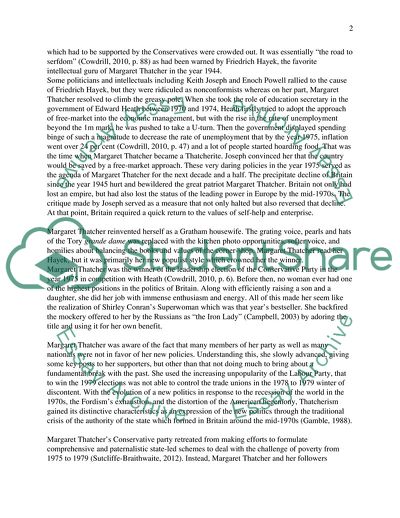Cite this document
(How, and to What Extent, Was Margaret Thatcher Successful Essay Example | Topics and Well Written Essays - 2000 words, n.d.)
How, and to What Extent, Was Margaret Thatcher Successful Essay Example | Topics and Well Written Essays - 2000 words. https://studentshare.org/history/1807974-how-and-to-what-extent-was-margaret-thatcher-successful
How, and to What Extent, Was Margaret Thatcher Successful Essay Example | Topics and Well Written Essays - 2000 words. https://studentshare.org/history/1807974-how-and-to-what-extent-was-margaret-thatcher-successful
(How, and to What Extent, Was Margaret Thatcher Successful Essay Example | Topics and Well Written Essays - 2000 Words)
How, and to What Extent, Was Margaret Thatcher Successful Essay Example | Topics and Well Written Essays - 2000 Words. https://studentshare.org/history/1807974-how-and-to-what-extent-was-margaret-thatcher-successful.
How, and to What Extent, Was Margaret Thatcher Successful Essay Example | Topics and Well Written Essays - 2000 Words. https://studentshare.org/history/1807974-how-and-to-what-extent-was-margaret-thatcher-successful.
“How, and to What Extent, Was Margaret Thatcher Successful Essay Example | Topics and Well Written Essays - 2000 Words”. https://studentshare.org/history/1807974-how-and-to-what-extent-was-margaret-thatcher-successful.


